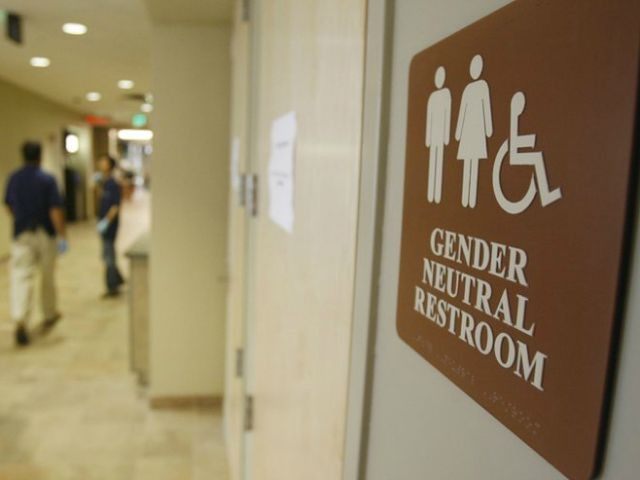A new bill proposed by Assemblyman Phil Ting (D-San Francisco) AB 1732, would force businesses, government buildings and other public venues to stop identifying single-use restrooms as either male or female and identify themselves as “all-gender” instead.
On the California State Assembly Democratic Caucus website, Ting stated, “Restrooms are a necessity of life. Access to them influences our ability to participate in public life. Signs restricting single-use restroom access by gender create problems of convenience, fairness, and safety. They defy common sense, which is why many of us ignore them. ‘All gender’ signs will end these problems and ensure everyone’s rights are protected.”
Co-author David Chiu (D-San Francisco) added, “Having access to a restroom without restrictions based on one’s gender identity simply makes sense. All gender restrooms will enhance dignity and safety for transgender and gender non-conforming individuals in their daily lives.” California has already fought one big battle over bathrooms in recent years.
Women’s groups and transgender groups were delighted. Kris Hayashi, Executive Director of Transgender Law Center, enthused, “All Californians should have the same freedom to participate in public life, go about their day, and use the bathroom when they need it. By making single-user restrooms accessible to all genders, this law will make life easier for everyone and reduce the harassment regularly experienced by transgender people and others who don’t match people’s stereotypes of what it looks like to be a man or a woman.”
Jerilyn Stapleton, President of California NOW, added, “When nature calls, women frequently have to wait. We shouldn’t have to wait or postpone having our needs fairly met in public. Everyone should experience equal waiting time. We have universal bathroom access at home and on airplanes so why not require it in public buildings?”
San Francisco legislators have been pushing the envelope for restroom use for years. In July 2013, AB 1266, authored by then-Assemblyman Tom Ammiano, required public K-12 schools to let transgender students choose which restrooms they use and which school teams they join based on their gender identity. But AB1266 did not collect enough valid signatures to make the November 2014 ballot.
Proponents complained that some signatures were unfairly disallowed. Karen England of the Privacy for All Students, said, “We are preparing for the next stage of the battle. After months of waiting, we now get to see why so many signatures were thrown out. Certainly some signers were not registered to vote or had moved without changing their address. But it is also certain that many of those signatures were rejected based on reasons that will not survive a legal challenge.”
In 2015, the Personal Privacy Protection Act, which called for persons to “use facilities in accordance with their biological sex in all government buildings,” and protected private businesses from being “subject to criminal, civil, or administrative sanctions, or civil suits for requiring employees, patrons, students, or any other person to use facilities in accordance with their biological sex,” failed to make the November 2016 ballot.
The bill, authored by a group called Privacy For All, did not gather the number of required signatures to make the ballot.

COMMENTS
Please let us know if you're having issues with commenting.